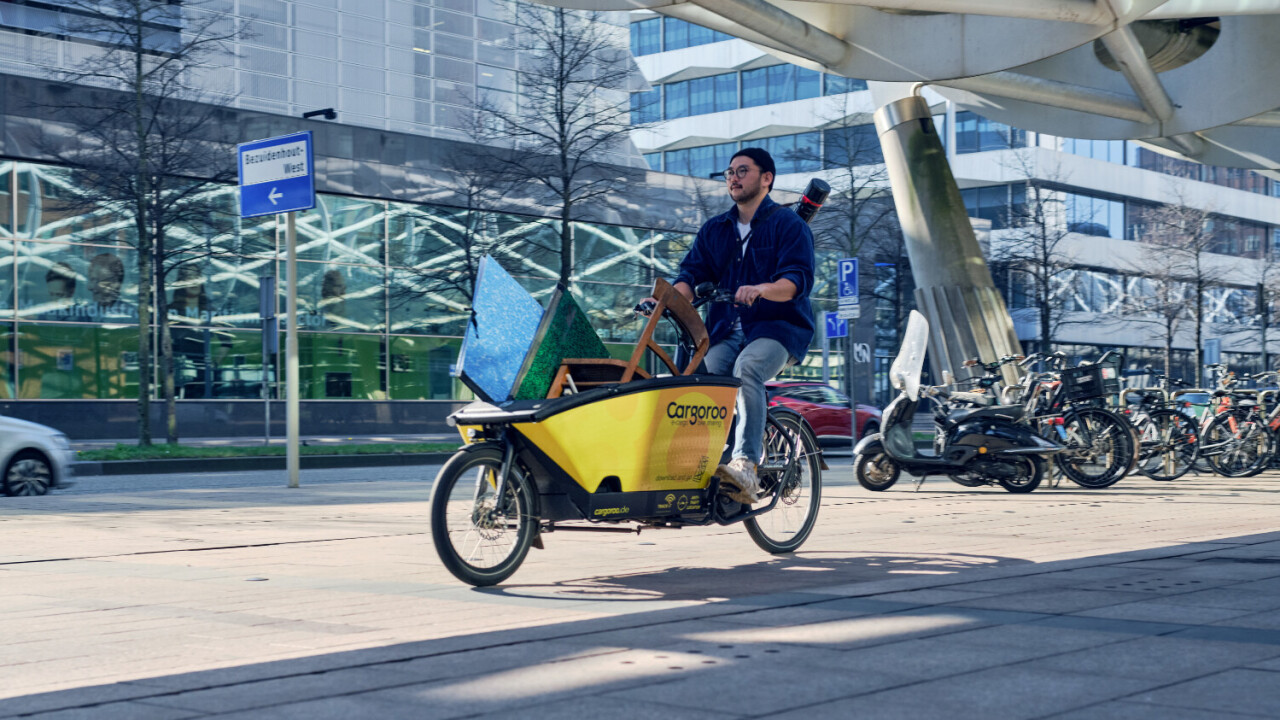
Amsterdam has refused to grant Cargoroo a new license to operate its shared cargo ebike rental service in the Dutch capital. Instead, it has handed over exclusive operating rights to BAQME, an upstart rival from Rotterdam.
The City first announced the decision in January. However, Cargoroo launched an appeal, which officials rejected last week.
Cargoroo’s existing license — which allowed it to run a fleet of 110 cargo ebikes in Amsterdam — comes to an end on June 16th. The startup has until the end of this month to remove all its bikes from the streets of the city.
But first, a bit of context.
Last year, Amsterdam updated its rules for shared cargo bike schemes. Under the new plan, the capital was divided into two “plots” — East and West — with one permit granted to each. A maximum of 375 cargo bikes are permitted per plot — a total of 750 across the city.

The Dutch capital is notoriously tough on shared mobility schemes, having banned almost all of them. To win a permit, potential shared cargo bike operators had to fill out an extensive questionnaire proving how their service would meet Amsterdam’s stringent requirements.
The questionnaire
The test works on a points system. Operators get more points, for example, if they promise to remove 90% of broken bikes from the street or repair them on-site within 12-24 hours. Less points if they take longer.
Other rules are related to traceability of the bikes, how dispersed they would be around the city, and how operators plan to handle user data. A full list of the requirements can be found here.
“Some of the conditions were a bit unreasonable,” Jaron Borensztajn, co-founder of Cargoroo, tells TNW. “Nevertheless we filled out the 50-page form, being careful not to exaggerate what we could achieve.”
BAQME, an upstart shared cargo bike provider from Rotterdam, also submitted the form. It scored 80 points more than Cargoroo and ended up winning both available permits.
Fair play?
According to Borensztajn, BAQME filled out the questionnaire in “an unrealistic way.”
When Cargoroo brought this to the City, officials told them “we have to assume that what people say is the truth [when filling out the questionnaire].”
“The whole procedure was very strange,” said Borensztajn.
When we contacted BAQME for comment, the startup did not address the allegations directly. Instead it said: “The permit topic is no longer a pertinent matter, as the appeal has been dismissed in court a couple of months ago as well as by an independent appeals committee.” It told us to direct further questions to the City.
According to the City of Amsterdam“a careful and transparent permit process was completed based on the conditions of the Additional Rules for Shared Cargo Bike 2023. Provider BAQME achieved the most points in the assessment for the West plot and the East plot.”
What’s next for shared cargo bikes in Amsterdam?
BAQME has now secured exclusive rights to operate a maximum of 750 shared cargo ebikes in Amsterdam for the next two years, with an option for extension. This marks its first time operating in the city, following roll-outs in Rotterdam and The Hague.
As of next week, BAQME said it will launch in Amsterdam with more than 100 cargo ebikes from Dutch brand Dolly Bakfiets. It said it will gradually build out its entire fleet to fill its permitted quota.

“We are working hard to make sure this can happen in a timely fashion so that everyone in Amsterdam can enjoy the benefits of shared e-cargo bikes,” said BAQME.
BAQME operates a model similiar to Cargoroo, where users use an app to find a bike near them, unlock it, and ride around at a fixed rate. However, Cargoroo uses Urban Arrow cargo ebikes.
Of the few shared mobility operations permitted in Amsterdam, all of them have at least one direct competitor. For instance, there are two shared moped companies operating in the city, Check and Go-sharing. There are over five shared car operators.
“Cargo bike users in Amsterdam are now left without a choice, and are now forced to use a kind of cargo bike and service they may not like,” said Borensztajn.
Meanwhile, Cargoroo has appealed the City’s decision once again, but the process could take up to a year.
Instead of removing its cargo bikes from Amsterdam altogether, Cargoroo plans to temporarily rent them out on a subscription basis, similar to Dutch brand Swapfiets. In this way, the bikes are no longer considered part of a shared rental scheme.
‘Bad for the market’
Cargoroo was founded in Amsterdam in 2017 with the aim to replace car trips with more environmentally-friendly and practical cargo bikes.
“It’s tough being kicked out of your hometown,” said Borensztajn. “But it’s also bad for the market, for competition.”
While the suspension of the license was a blow for the company, it maintains operations in several Dutch cities as well as Belgium, Germany, and France. Most of its customers are parents looking for a quick way to transport their kids or students moving around furniture.
“We would’ve actually liked to share the market with BAQME and others,” said Borensztajn. “It’s good for this industry.”
The founder believes Amsterdam’s approach to shared mobility providers has knock-on effects on startups. “Investors will say ‘this is a totally unreliable market because cities can do anything they want to your service’”.
Get the TNW newsletter
Get the most important tech news in your inbox each week.





